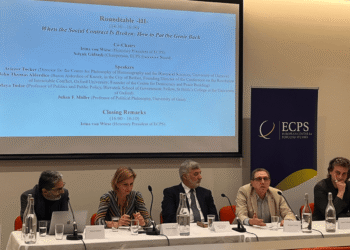By Joanna Rak
The coronavirus pandemic has considerably impacted ongoing political conflicts, power struggles, and (in)stability of political regimes across the world. Election campaigns and elections are vital for the final results of this impact. It is due to the tremendous risk a public health emergency poses to the ability of state authorities to provide safe, universal, equal, genuine, and transparent elections. From this perspective, critical elements of the electoral cycle include cancellation, postponement, postal voting, electronic voting (Landman and Di Gennaro Splendore, 2020, pp. 1061–1062), and candidates’ access to the mass media while running campaigns (Francia, 2018).
In Poland, the right-wing ruling Law and Justice party (Prawo i Sprawiedliwość, PiS) was not eager to postpone the presidential election, which was to be held during a public health emergency even in the face of rising infections, deaths, and widespread criticism (Bill and Stanley, 2020). The incumbent president Andrzej Duda, and at the same time the PiS candidate, was the frontrunner to win a second five-year term. However, as the number of infections and deaths from coronavirus disease increased and the inefficiency and weaknesses of the Polish health care system were exposed, the level of public support for Duda began to decline (Pytlas, 2021). The independent media strengthened the image of Duda as an indecisive, passive president, following the president of PiS, Jarosław Kaczyński’s orders. At the same time, the most influential politicians of the ruling party, including Prime Minister Mateusz Morawiecki, were engaged in maintaining, increasing, and rebuilding support for the incumbent president (Rezmer-Płotka, 2021). Significant support also came from partisan institutions, especially state media subordinated to the ruling party since 2015, which engaged in the discursive legitimisation of Duda and the delegitimisation of his counter-candidates and opponents organising resistance (Rak, Bäcker, and Osiewicz, 2021). As the OSCE Office for Democratic Institutions and Human Rights underlined, for the first time in democratic Poland, the public broadcaster TVP failed to meet its legal duty to provide fair and balanced coverage (ODIHR, 2020, p. 4).


